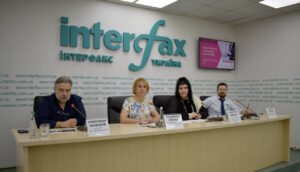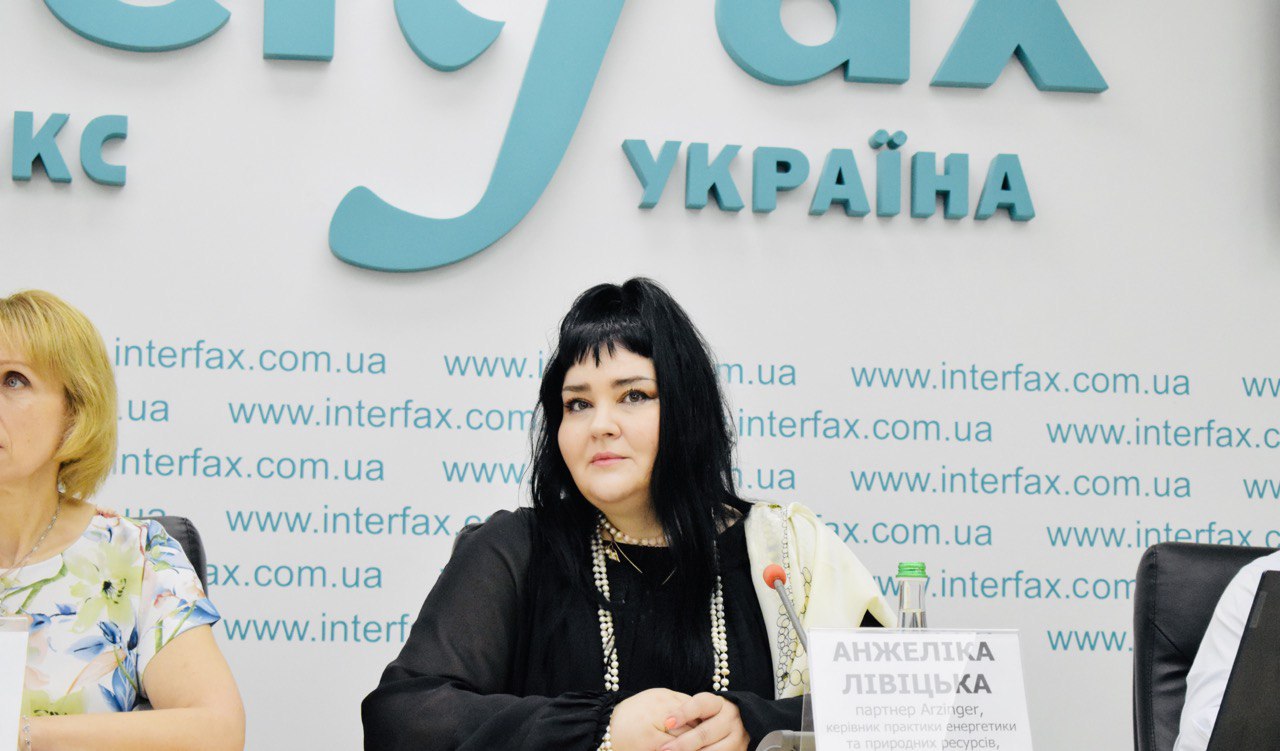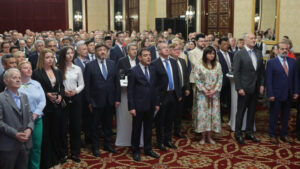
Since the full-scale invasion, the Pokrovske community has become a real humanitarian hub, receiving various types of assistance from representatives of both Ukrainian organizations and international foundations on a daily basis. All of them are united by a common goal – to help civilians in confronting the enemy.
An equally important component of this cooperation is the openness to interaction of the Pokrovske MCA leaders, who work daily to “cover” all the needs of the community.
Recently, the town was visited by representatives of the Volunteer Coordination Headquarters (Kyiv), a charity organization that works closely with European countries on humanitarian aid.
“The winner is the one who destroys the enemy’s strategic plan. Therefore, all attention is focused on Donetsk region, because it is the “most important” region. Since 2022, we have been actively helping our defenders and the frontline communities of Donetsk Oblast, whose residents suffer from shelling every day,” said Oleksandr Kuzniak, the foundation’s chairman.
During the visit to Pokrovsk, the volunteer philanthropists met with the heads of the military administration, including Natalia Ivanio, deputy head of the Pokrovsk MVA, and discussed the needs of the community.
They brought power tools that will be useful for the city’s utility workers.
“We come to Donetsk region at least once a month. We form a truck with humanitarian cargo according to the needs that the military and community leaders send us. This is not the first time we have been in Pokrovsk, and we are working closely with Sergey Dobryak, who is always open to cooperation, especially in humanitarian issues. We plan to continue to support the Pokrovsk community, which is located in close proximity to the front line. It is extremely important today,” added Mr. Kuzniak.
In her turn, Natalia Ivanio, Deputy Head of the Pokrovske MVA, thanked the benefactors for their help and active social position.

Ambassador Darkhan Kaletaev participated in the presentation of the Budinok Mami Resource Center in Kyiv.
The presentation was attended by representatives of the Secretariat of the First Lady, Ministry of Foreign Affairs of Ukraine, UNICEF, Office of the Ombudsman of Ukraine, Kyiv State City Administration, National Children’s Specialized Clinic “OCHMATDIT”, Chamber of Commerce and Industry of Ukraine, Ambassadors Extraordinary and Plenipotentiary and diplomats of European states and CIS countries accredited in Ukraine, Ukrainian businessmen, media representatives, etc. The project is implemented by the Public Foundation “Anaүi” with the support of the Ambassador of Kazakhstan.
The project is realized by the Public Foundation “Ana Uyi” with the support of the Embassy of the Republic of Kazakhstan in Ukraine.

Executive Director of the Public Foundation “Ana Uyi” Azharkul Klyshbaeva during the presentation informed about the first year of work of the resource center “Budinok Mami”. From July 2023 until now 18 women have received the necessary assistance, as a result of which 24 children have avoided institutionalization. The Foundation plans to open similar institutions in other regions of Ukraine.
The project is being implemented in Uzbekistan, Kyrgyzstan, Turkey, Malaysia and Azerbaijan.

Ukrainian exporters of products to EU countries and the Ukrainian government should pay more attention to the problem of decarbonization within the Green Deal strategy and, in particular, CBAM – an additional tax for goods with a high level of carbonization during production, which comes into effect from 2026.
This opinion was expressed by experts and representatives of companies during a roundtable discussion held at the press center of the Interfax-Ukraine news agency on Tuesday on “The impact of CBAM on domestic exporters”.
Olga Kulik, Director of the Department of Ecology of Energy and Green Economy of the Federation of Employers of Ukraine, noted that CBAM is very important, it affects exporters, every enterprise.

According to her, during a recent business trip she communicated with representatives of enterprises and structures in Europe, they collect information on CBAM reports. At the same time, if European companies realize the requirement for verification of emission reports, Ukrainian enterprises have problems in this direction, in particular, Ukrainian verifiers must be accredited by the European Commission.
“Verification by data – time is going fast, and we cannot delay these problems. Therefore, the Ministry of Economy together with the Ministry of Ecology will negotiate so that verification will be accredited in the EC. But so far the issue has not been resolved,” Kulik said.
On the other hand, according to her, European countries also have certain problems with the unified standardization of a number of points, with further steps to implement the “green” initiative. It is necessary to create a working group, for work within the framework of which Ukraine should receive an invitation.
In turn, the director of the information and analytical center GMK Center Stanislav Zinchenko stated that by implementing the SWAM mechanism the EU protects its markets. And in the future similar mechanisms will be introduced in other countries, such as the UK, USA, Australia.
“This is a new wave of protectionism, this is ‘green’ protectionism and it will step the planet. It will lead to a reformatting of flows, but it will also help reduce emissions,” Zinchenko predicts, adding that there are currently not enough emission verifiers in the EU, in Ukraine and globally.
“Less than 10% of the 20,000 companies in Germany that were supposed to report on time have done so. And in Ukraine there are also problems with the reports, with the methodology. A very crude procedure, a crude experiment, but it is starting to affect Ukrainian companies. Ukraine does not have a single document on SWAM”, – stated the expert.
According to him, due to force majeure circumstances because of the war, Ukraine may not be subject to the requirement to submit verified reports from 2026, but only declarative reports on SWAM, without payment for certificates.

According to him, in case of introduction of strict requirements of the SWAM, Ukraine’s losses, if calculated at 2023 prices, may amount to $600 million for pig iron exports (“minus” 1.4 million tons), $640 million for semi-finished products, and $200 million for rolled products. In general, losses at steel enterprises may reach $1.5 billion.
Other industries will also suffer losses.
“We do not see the interest of either the government or the ministries, which should conduct constant negotiations. And the EU is surprised why Ukraine is not actively involved in this process. Unfortunately, part of the government employees believe that this is a problem of business, not the Cabinet,” Zinchenko summarized.

Arzinger partner, head of the Energy and Natural Resources, Environmental Protection and Sustainable Development practice Angelika Livitskaya emphasized that SWAM is a mix of ecology and economics, and Ukraine has an obligation to implement EU legislation in Ukraine.
“We are implementing a number of waste management regulations. And we expect more cooperation from the government and ministries. It is unlikely that we will make it by 2050, but we have a commitment,” Livitskaya said.
According to her, cement, steel, aluminum, and fertilizers will fall mainly under SWAM. And it is necessary to submit reports by May 31 of each year, the first time – by May 31, 2027 with a report for 2026. Failure to submit reports will result in significant fines, from EUR10 to EUR50 for each ton of emissions.
“The government needs to raise the issue of force majeure for Ukrainian enterprises,” Livitskaya believes.
Lyudmyla Kripka, executive director of the Ukrcement association, noted that Ukrainian enterprises have the opportunity to declaratively submit emission reports.
“We initiated such a procedure, we are not obliged to buy SWAM certificates under force majeure circumstances. We offer and ask to work within the framework of SWAM on a declarative principle,” – emphasized Kripka.
The President of Ukrmetallurgprom OP Oleksandr Kalenkov noted that metallurgical enterprises consider SWAM as an irreversible process: “One way or another, it will be implemented and will be worldwide, it will lead to some reformatting of trade all over the world”.
Previously up to a third of steel products went to the EU, the share has now increased due to the blocking of the sea route, and it could increase if the blockade resumes.
“It is important for the government to get involved in the process, to pay more attention to it,” Kalenkov stressed, noting that Euro companies from this eco-initiative receive certain subsidies for their development and modernization.

“It is necessary to level the playing field between Ukrainian and European companies – to apply force majeure conditions for Ukrainian enterprises. It is necessary to approach this issue comprehensively, to take into account the issues of modernization of companies. The Ministry of Industry and Ministry of Economy are involved in this process, but it is important that there is one center that will manage this process, so that a unified position is communicated to European colleagues”, – said the head of Ukrmetallurgprom.
He also believes it is necessary to create a competitive market of verifiers in Ukraine so that both local and European companies could work here.
Earlier, the head of international relations of Metinvest Group Andriy Kryl during Ukraine’s Future Summit said that soon a new obstacle for Ukrainian companies to work in the European market will be the carbon duty (CBAM), which will work in full in 18 months. The top manager expressed hope that thanks to the dialog between the Ukrainian government and the European Commission these obstacles can be overcome and trade flows will remain uninterrupted.
In turn, Vladyslav Varnavskiy, Director for Ecology and Industrial Safety of Interpipe, at the “Exporters’ Summit” organized by Forbes Ukraine, noted that companies should pay more attention to environmental projects within the framework of the EU requirements on the topic of “green” economy – Green Deal and CBAM. And clarified that despite the fact that this topic is becoming increasingly broad and not only political, but also economic and public, in Ukraine so far few companies pay attention to it, even exporters of products to the EU.
As stated on the website of the European Commission, the “green” agreement (Green Deal) is a strategy that should bring the EU economy to a modern, resource-efficient and competitive state through commitments to reduce greenhouse gas emissions by 55% by 2030 and stop completely by 2050.
ANZHELIKA LIVITSKA, CBAM, LUDMYLA KRIPKA, MAXIM URAKIN, OLEXANDR KALENKOV, OLHA KULYK, STANISLAV ZINCHENKO

The Ukrainian energy sector is going through a difficult period. Massive attacks on energy infrastructure in the spring
energy infrastructure in the spring caused serious damage, destroying or
most thermal and hydroelectric power plants. Restrictions on electricity consumption
electricity consumption are in place for industrial consumers, and on some days it is necessary to
blackout schedules for households have to be applied on some days. In the summer, the power system
is planned to be balanced by renewable energy sources. Preparing for the
for the next autumn and winter period requires significant efforts from the energy sector,
government and business. A separate important issue is the choice of a strategy for restoring
energy infrastructure to reduce its vulnerability to missile attacks.
At KIEF TALKS, we will discuss the state of the Ukrainian energy sector, plans and objectives for further
government’s actions to ensure energy security, as well as opportunities for
for the restoration and development of Ukraine’s energy sector. The event will become a platform for
dialogue between the state and business to restore and develop the energy sector in Ukraine.
Ukraine.
SPEAKERS:
– Natalia Boyko, Advisor to the Prime Minister of Ukraine on Energy, Deputy
of the Supervisory Board of Naftogaz of Ukraine
– Volodymyr Kudrytskyi, Chairman of the Board of NPC Ukrenergo
– Dmytro Sakharuk, Executive Director of DTEK
– Igor Tynnyi, entrepreneur, co-founder of the Ukrainian Association of Renewable Energy
Energy Association
– Andrian Prokip, Head of the Energy Program at the Ukrainian
Institute for the Future (Kyiv); Senior Fellow at the Kennan Institute
(Washington, DC)
MODERATOR:
Kyrylo Kryvolap, Head of the Center for Economic Recovery, Advisor to the Prime
Minister of Ukraine on a pro bono basis
Date: June 5
Time: 17:00-19:00
Registration and Welcome Drink start at 16:00
Venue will be sent after registration confirmation
Registration is required via the link:
https://forms.gle/VdvT1xjBZehyMwck6
The number of seats is limited.

Receipts of taxes, fees and mandatory payments to the general fund of the state budget of Ukraine, according to operational data, amounted to UAH 151.6 billion in May, compared to UAH 154.6 billion in April and UAH 164.3 billion in March, such operational data (as of 16:00 on May 31) reported the Ministry of Finance on its website.
According to its data, in May, through the State Tax Service revenues recovered to 99.8 billion UAH from 59.7 billion UAH in April, which is slightly less than 105.7 billion UAH in March.
It is specified that in May, income tax revenues increased to UAH 42.0 billion after falling to UAH 3.2 billion in April, partially offset by a one-time transfer of UAH 38.64 billion of profits by the National Bank. As reported, in March and February, income tax brought over UAH 60 bln monthly to the state budget, but part of it was paid in advance.
As for other taxes, personal income tax and military levy increased to UAH 17.3 billion (UAH 16.5 billion) in May, rent tax increased to UAH 5.8 billion (UAH 5.5 billion), and excise tax decreased slightly to UAH 11.4 billion (UAH 11.5 billion).
Value-added tax also fell to UAH 20.2 billion (UAH 22.8 billion): UAH 32.8 billion (UAH 34.8 billion) was collected and UAH 12.7 billion (UAH 12.0 billion) was refunded.
Receipts from the State Customs Service increased in May slightly decreased to UAH 48.4 billion from UAH 48.9 billion in April.
The Ministry of Finance pointed out that the monthly revenue estimates for the general fund of the state budget, according to operational data, were exceeded by 8.6% (+12.0 billion UAH), including by the State Tax Service – by 6.6% (+6.2 billion UAH), while the State Customs Service – by 12.1% (+5.2 billion UAH).
At the same time, there were no receipts to the general fund of the state budget of international aid in the form of grants, while in April they amounted to UAH 2.7 billion, in March – UAH 3.1 billion.
“In general, according to operational data, at the end of May 2024, the general and special funds of the state budget received 227.4 billion UAH (in April – 200.8 billion UAH, in March – 225.9 billion UAH) of taxes, fees and other payments. In addition, about UAH 42.0 billion (in April – UAH 40.1 billion) in the form of ERUs was received by the Pension Fund and social insurance funds,” the ministry added, thanking taxpayers for their contribution to the support of the Ukrainian army and financial stability of the country.
Data on expenditures in May are not yet available.
As reported, the Verkhovna Rada adopted the state budget for 2024 with a deficit of UAH 1.57 trillion, or 20.6% of projected GDP. Revenues of the state budget-2024 are set at UAH 1.77 trillion (not taking into account possible grant aid), expenditures – UAH 3.36 trillion at an average annual exchange rate of UAH 40.7/$1.
State budget-2023 revenues amounted to UAH 2.67 trillion, of which grant aid amounted to UAH 0.43 trillion. Cash expenditures of the state budget last year exceeded UAH 4 trillion, while the deficit amounted to UAH 1.33 trillion at an average annual exchange rate of about UAH 36.6/$1.
In late May, Finance Minister Serhiy Marchenko estimated the need for additional military expenditures in the 2024 state budget at $5 bln, while according to the head of the parliamentary committee on finance, tax and customs policy Daniil Getmantsev, “expert estimates that the actual gap is at least twice as large as the current estimate of UAH 200 bln ($5 bln) are not far from the truth”.
In this regard, the possibility of raising the military levy and value-added tax, as well as a number of excise taxes, is being considered.
Earlier Experts Club analytical center and Maxim Urakin released a video analysis on macroeconomics in Ukraine and in the world, more video analysis is available here.
Subscribe to Experts Club YouTube channel here – https://www.youtube.com/@ExpertsClub

On May 28, 2024, the Embassy of Azerbaijan in Ukraine hosted a reception in Kyiv on the occasion of the 106th anniversary of the establishment of the Azerbaijan Democratic Republic.
It has been 106 years since the establishment of the first democratic, legal and secular state in the Muslim East – the Azerbaijan Democratic Republic (ADR) on May 28, 1918, which was founded by Mammad Emin Rasulzade.

In a tense and complicated socio-political situation, the DDR lasted only 23 months. The independent Republic of Azerbaijan was occupied by the Bolsheviks and only after the collapse of the USSR did Azerbaijan regain its independence for the second time. The Republic of Azerbaijan, which restored its state independence on October 18, 1991, by the relevant Constitutional Act, proclaiming itself the successor of the Azerbaijan Democratic Republic, adopted its state attributes, including the national flag, national anthem and coat of arms.
The solemn event was attended by distinguished guests: foreign diplomats, representatives of the government, Islamic religious leaders, members of the Azerbaijani diaspora in Ukraine, cultural figures and educators.
The Ambassador Extraordinary and Plenipotentiary of the Republic of Azerbaijan to Ukraine, Y.V. Seymur Mardaliyev, addressed the audience with a welcoming speech.

In his speech, the Ambassador focused on the history and present of the Azerbaijan Democratic Republic.
“Today, under the leadership of President Ilham Aliyev, our country is realizing the hopes and ideals of the Democratic Republic of Azerbaijan. Azerbaijan is going through the most grandiose and successful period in its long history and has never been as strong as it is now,” the diplomat said.
The ambassador also noted that Azerbaijan was one of the first countries to provide humanitarian aid since the beginning of the full-scale Russian invasion of Ukraine and is ready to continue to provide this assistance.
Deputy Minister for Foreign Affairs of Ukraine Yevhen Perebyinis expressed greetings on behalf of the Ukrainian government.
Yevhen Perebyinis expressed gratitude to Azerbaijan for its consistent political, humanitarian and military support of Ukraine and expressed hope for further strengthening of the strategic partnership between the two countries.
On February 6, 1992, Ukraine and Azerbaijan established diplomatic relations. The Embassy of Ukraine in Azerbaijan has been operating since May 5, 1996, and the Embassy of Azerbaijan in Ukraine was opened on March 12, 1997.